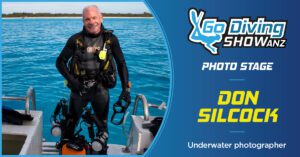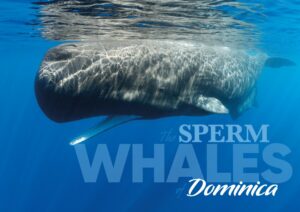Q: Having had painful joints, muscles and nerves for years, I have just been diagnosed with hypermobility (Ehlers-Danlos) syndrome. I also have bulging discs in my neck, occasional bouts of sciatica, and a winging shoulder blade (which causes a lot of thoracic nerve pain on a regular basis). One or all of the above tends to give me intermittent bouts of pins and needles, in my arms and legs. Should any of this stop me from diving? Carrying tanks and weights while diving didn’t seem to bother me in the past. Could I be predisposed to DCS do you think?
A: The word collagen tends to conjure up images of voluptuous pouty lips, of the Angelina or Scarlett variety. In fact, collagen is found all over the body, being the major constituent of ligaments, tendons, bones and cartilage. The word actually means ‘glue producer’, referring to the boiling of animal joints to produce glue, a process that goes back 8,000 years. Ehlers-Danlos syndrome (EDS) is a group of genetic disorders, whose common feature is defective or inadequate amounts of collagen. Two doctors (you can probably guess their names) discovered Ehlers-Danlos syndrome (EDS) in the early 1900s.
And so to diving. The issues I would anticipate are several. Due to the laxity of the joints, dislocations are common, so hauling your wet self and gear up a ladder in choppy waters might put you at high risk of a popped shoulder or hip. Degenerative joint disease can occur, which might render the joints more susceptible to damage from microbubbles in the long term, similarly to commercial divers. The pins and needles you experience could present us with the old diagnostic conundrum – is this your EDS or DCI? So being very aware of your pre-dive condition takes on extra importance. The other possibility is mitral valve prolapse (MVP), where the defective collagen renders one of the heart valves very floppy. MVP is quite common (5-7 percent of the population), and in general quite benign, but it can sometimes cause chest pains, palpitations, and breath-lessness, depending on the degree of ‘leakiness’ of the valve.
I don’t think any of this rules out diving completely, but sensible precautions and regular check ups would flag up any potential problems before they became apparent underwater.
Q: We are a reasonably active club with a bizarrely high proportion of members afflicted by high testosterone levels (by which I mean about two thirds of us are bald). As a result, we are often discussing how to keep warm, and naturally we all wear hoods when diving. But is it true that most heat is lost through the head?
A: The origin of this particular myth seems to be poor reporting of a poorly conducted and only vaguely scientific experiment carried out by the US military in the 1950s. Volunteers were dressed in Arctic survival suits, without hoods, and exposed to bitterly cold conditions. Because their heads were the only part of their bodies left uncovered, most of their heat was lost this way. It might have been considerably more instructive, not to mention fun, to carry out experiments in similar conditions with other body parts uncovered; if the experiment had been performed with people wearing only pants, it is estimated they would have lost no more than ten percent of their body heat through their heads.
The rate of head heat loss does change depending on how cold it is (the lower the temperature, the quicker heat is lost) and with exercise (heat loss through the head is reduced with increasing exertion). However, the rate of heat loss is not dependent on the body part in question; it’s the same whether it’s the head, hand, foot or any other appendage.
Also do read if you Can you scuba dive after a stroke?








